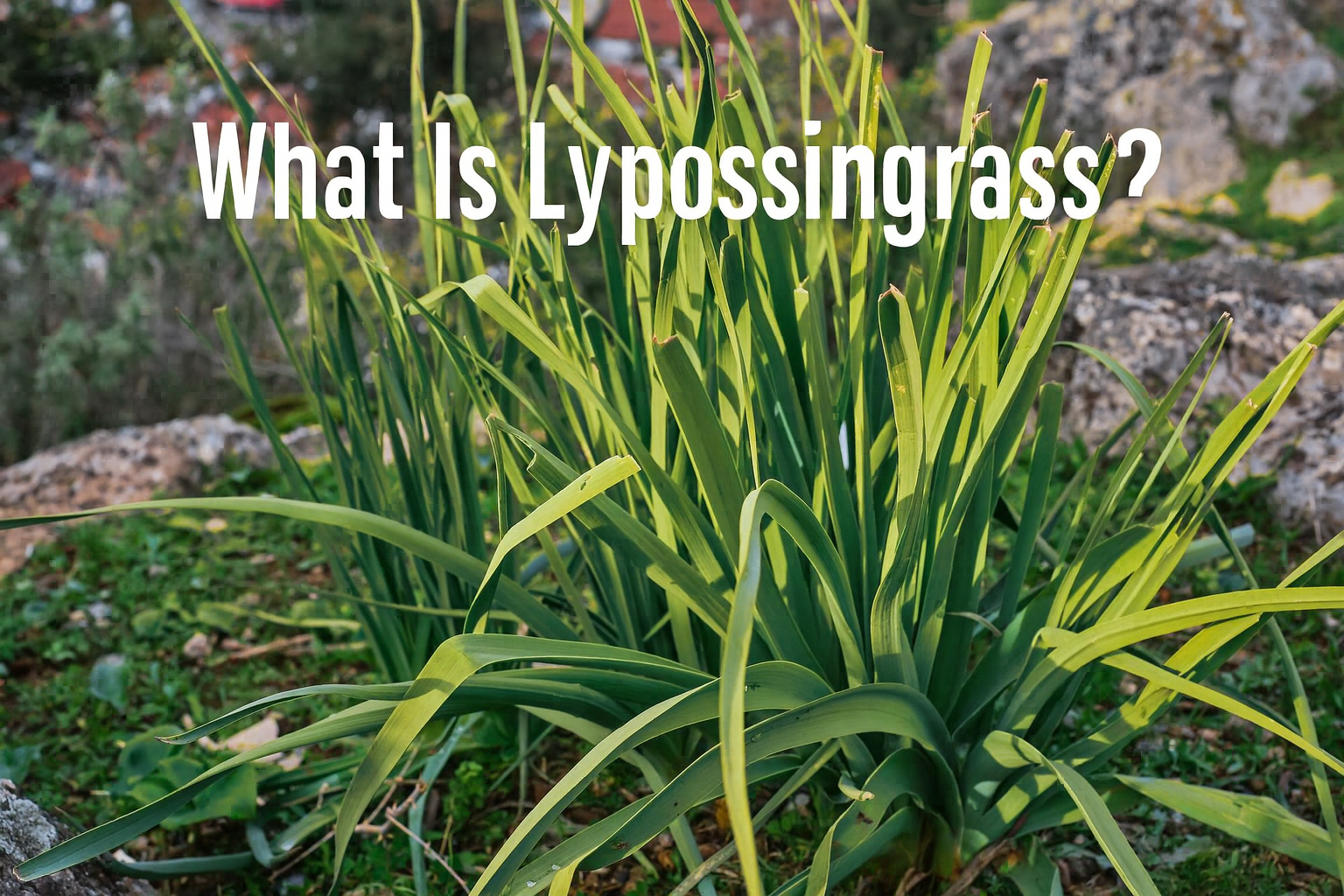Introduction
You’re not alone if you’ve recently encountered the word Lyposingrass and wondered, “What is Lyposingrass?”. The term appears in wellness blogs, eco-friendly discussions, and lifestyle forums, but the explanations often don’t match. Some sources describe it as a special type of grass designed for sustainability, while others call it a herbal plant linked to energy and weight management. There are even places where it’s explained more like a new idea or symbol rather than a real species. All this confusion makes it difficult for readers to know what’s fact, what’s assumption, and what’s simply marketing buzz.
This article takes a closer look at Lyposingrass from every angle. We’ll break down the different meanings, discuss the health and environmental claims, and highlight where there is evidence and where there isn’t. By the end, you’ll have a clear picture of why people are talking about Lyposingrass, what benefits are claimed, and how much of it you should take with caution. Instead of hype, you’ll get a balanced and straightforward guide to decide whether Lyposingrass is worth paying attention to.
The Short Answer: What Is Lyposingrass?
When people ask, “What is Lyposingrass?” there isn’t just one definition. The term is being used in a few very different ways, and that’s why so many explanations sound confusing.
- Eco-friendly grass: Some sources describe Lyposingrass as a new type of sustainable grass. It’s said to grow with little water, absorb more carbon dioxide, and improve soil health. In this sense, it’s presented as a solution for landscaping, gardening, and even urban greening projects.
- Herbal plant: Other websites call Lyposingrass a wellness herb. In this version, it’s often linked to teas, powders, or supplements that claim to support digestion, boost energy, or even help with metabolism.
- Symbolic concept: A third angle treats Lyposingrass more like an idea than a plant. Here, it’s explained as a new word representing balance, creativity, and personal growth—a trending concept rather than a species you can grow in your backyard.
In short, Lyposingrass can mean very different things depending on where you read about it. The challenge is separating the claims from reality, and that’s what the rest of this guide will do.
Origins and Meaning of Lyposingrass
The word Lyposingrass is still new, and that’s one reason why it feels a little mysterious. Unlike well-known plants such as lemongrass or wheatgrass, there’s no official botanical record for Lyposingrass. Instead, the name seems to have come from two parts: “lypo” or “lipo,” which often relates to fat or lipids, and “grass,” which is usually linked to nature, growth, or herbs. Put together, it creates a term that sounds scientific but is still open to interpretation.
Because of this, Lyposingrass has taken on different meanings in different spaces. In wellness, the “lypo” part suggests fat metabolism or weight support. The “grass” part in sustainability circles indicates a hardy plant with eco-friendly qualities. Beyond that, some blogs and forums even use it as a symbolic idea—a word that represents balance, creativity, or a modern approach to natural living.
In other words, the origins of Lyposingrass are not fixed in science but in marketing, culture, and imagination. That’s why you’ll see it described as a plant, a supplement, and a lifestyle concept.
Claimed Benefits of Lyposingrass
Because Lyposingrass is still new and poorly defined, many benefits you see online are based more on claims than on proven science. Still, three main areas keep coming up when people talk about it: wellness support, weight management, and sustainability.
1. Wellness and energy
Some blogs describe Lyposingrass as a herbal plant used in teas or powders. It’s said to help with digestion, boost energy, and support overall wellness. These claims sound appealing, but no strong scientific research confirms them. Most of the information comes from anecdotal reports or comparisons to better-known herbs.
2. Weight and metabolism
The “lypo” part of the name has led to claims that Lyposingrass can help with fat metabolism or weight control. In other words, it’s marketed as something that may “burn fat” or improve how the body uses lipids. However, there’s no reliable evidence behind these claims at this stage. Anyone interested in Lyposingrass for weight loss should be cautious, since unproven supplements can carry risks.
3. Eco-friendly potential
Another group of sources presents Lyposingrass as a type of sustainable grass. This version is praised for being drought-resistant, improving soil health, and absorbing more carbon dioxide. These are big promises, but very little data has been published to back them up. The idea is exciting, but it still needs proper testing and research.
In short, the benefits of Lyposingrass sound impressive—whether for health or the environment—but readers should treat them as early claims rather than facts.
Growing and Uses of Lyposingrass
If Lyposingrass is taken as a plant or herb, most sources describe it as relatively easy to grow. It’s often compared to other hardy grasses that can adapt to different climates. Some blogs suggest it is best in temperate or subtropical regions, with moderate watering and well-drained soil. Because it’s said to be drought-tolerant, it may survive in places where other grasses struggle. However, since there’s no official botanical record yet, these tips are based on general advice rather than proven studies.
When it comes to uses, Lyposingrass is usually mentioned in two ways:
- Culinary and wellness uses: Some people prepare it in teas, mix it into powders, or add it to home remedies. It’s often marketed like a superfood herb despite the evidence being thin.
- Environmental uses: In sustainability circles, it’s a possible solution for landscaping, soil protection, or even urban greening projects. These ideas are attractive but remain more theoretical than tested.
In practice, you must be cautious if you grow or use Lyposingrass. Ensure you know what you’re buying, since many suppliers may label different plants under the same name. Clear identification and quality sourcing are key.
Safety and Side Effects of Lyposingrass
Because Lyposingrass is still a new and loosely defined term, there isn’t much scientific research on its safety. That means most warnings are based on general knowledge about herbal plants and supplements rather than on this plant itself. Still, it’s worth keeping a few points in mind.
1. Limited research
No trusted studies confirm how Lyposingrass affects the body at the moment. Without precise data, knowing the correct dosage, long-term effects, or how it interacts with other foods or medicines is impossible.
2. Possible side effects
Like many herbs, Lyposingrass could cause mild digestive discomfort, allergic reactions, or medication interactions. Some sources advise people who are pregnant, breastfeeding, or on prescription drugs to avoid it until more is known.
3. Quality and sourcing risks
Since there is no official botanical record of Lyposingrass, products sold under this name may not always be consistent. One supplier’s “Lyposingrass” might not be the same as another’s, increasing the risk of mislabeling, contamination, or poor-quality ingredients.
Bottom line: Until more research is available, it is best to treat Lyposingrass with caution. If you want to try it, always talk to a healthcare professional and ensure you source it from a reliable supplier.
Red Flags and Misinformation About Lyposingrass
One of the biggest challenges with Lyposingrass is that there’s no reliable definition. Because of this, a lot of the information you’ll find online is inconsistent, and in some cases, misleading. Here are a few red flags to watch out for:
1. Vague or copied content
Many top-ranking articles repeat the same claims without citing any credible sources. Some even describe Lyposingrass as a herbal supplement and a sustainable grass in the same post, which only adds to the confusion.
2. Lack of scientific proof
So far, there are no peer-reviewed studies, official plant databases, or government health guidelines about Lyposingrass. That means any claims about health benefits, fat-burning effects, or eco-friendly impact are unverified.
3. Marketing over facts
Some websites use power words like “miracle,” “secret,” or “super herb” to make Lyposingrass sound impressive. These emotional hooks are designed to attract clicks but don’t reflect scientific evidence.
4. Risk of mislabeling
Because the plant hasn’t been clearly identified, products sold as “Lyposingrass” could be something else. This raises concerns about safety, quality, and consistency.
Being aware of these red flags will help readers separate hype from reality. The safest approach is to treat Lyposingrass as an emerging idea rather than a proven plant or supplement.
Conclusion
Lyposingrass is a term that has caught attention quickly, but its meaning is far from clear. Depending on where you look, it can be described as an eco-friendly grass, a herbal plant with wellness benefits, or even a symbolic concept linked to balance and creativity. While these ideas sound interesting, none is backed by substantial scientific research or official recognition.
If you’re curious about Lyposingrass, the key is to approach it cautiously. Don’t rely on vague claims or marketing hype; always make sure you know exactly what you’re buying if you see it sold as a product. For now, it’s best to treat Lyposingrass as an emerging trend rather than a proven solution for health or sustainability. As more information comes out, the picture may become clearer—but until then, an informed and careful approach is the smartest choice.
FAQs About Lyposingrass
1. Is Lyposingrass a real plant?
Not exactly. There’s no official record of Lyposingrass in scientific plant databases. Most of what you’ll find online comes from blogs or marketing content, not verified sources.
2. Is Lyposingrass the same as lemongrass?
No, Lyposingrass is not the same as lemongrass. Lemongrass is a well-known herb used in cooking and natural remedies, while Lyposingrass is still an undefined and debated term.
3. Does Lyposingrass really help with weight loss?
There’s no scientific evidence that Lyposingrass supports fat burning or metabolism. Claims about weight loss are primarily based on the “lypo” part of the name rather than actual research.
4. Can I grow Lyposingrass at home?
Some sources suggest it can grow in temperate or subtropical climates, but without an official species definition, it’s unclear what plant you’d be growing. Always check the supplier and plant details before buying.
5. Is Lyposingrass safe to use?
Since it hasn’t been adequately studied, safety information is limited. There could be risks if it interacts with medicines or if the product is mislabeled. It’s best to talk with a healthcare professional before trying it.




